Watery Eyes in the Morning

Reviewed by
Beck Jinnette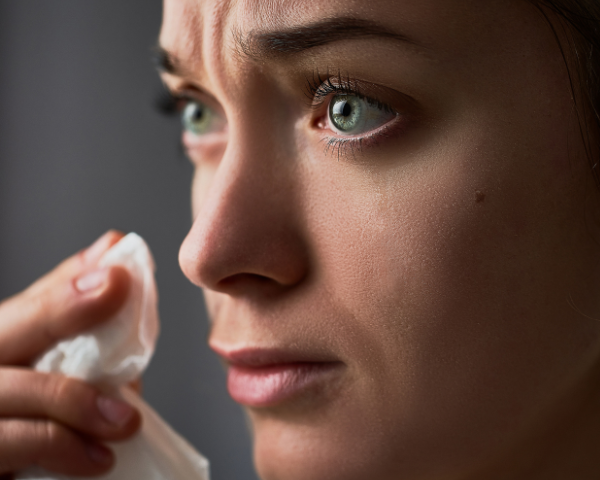
Our eyes can tear up or water for many reasons. If you wake up in the morning and notice that your eyes are more watery than usual, you may have what is called epiphora.
Epiphora is the medical definition of watery eyes, which indicates that your eyes are producing too many tears or something is stopping the tear drainage system from working properly.
This article will cover the most common causes and symptoms of watery eyes in the morning and provide solutions that can help.
Causes of watery eyes (epiphora)
- Lack of correct tears components (that help to help your tears ‘stick’ to your eyes)
- Allergies
- Eye irritation due to the weather
- Blocked tear duct
- Eye strain
- Eye infection (i.e., pink eye)
- Dry eye syndrome
- Eyelid inflammation
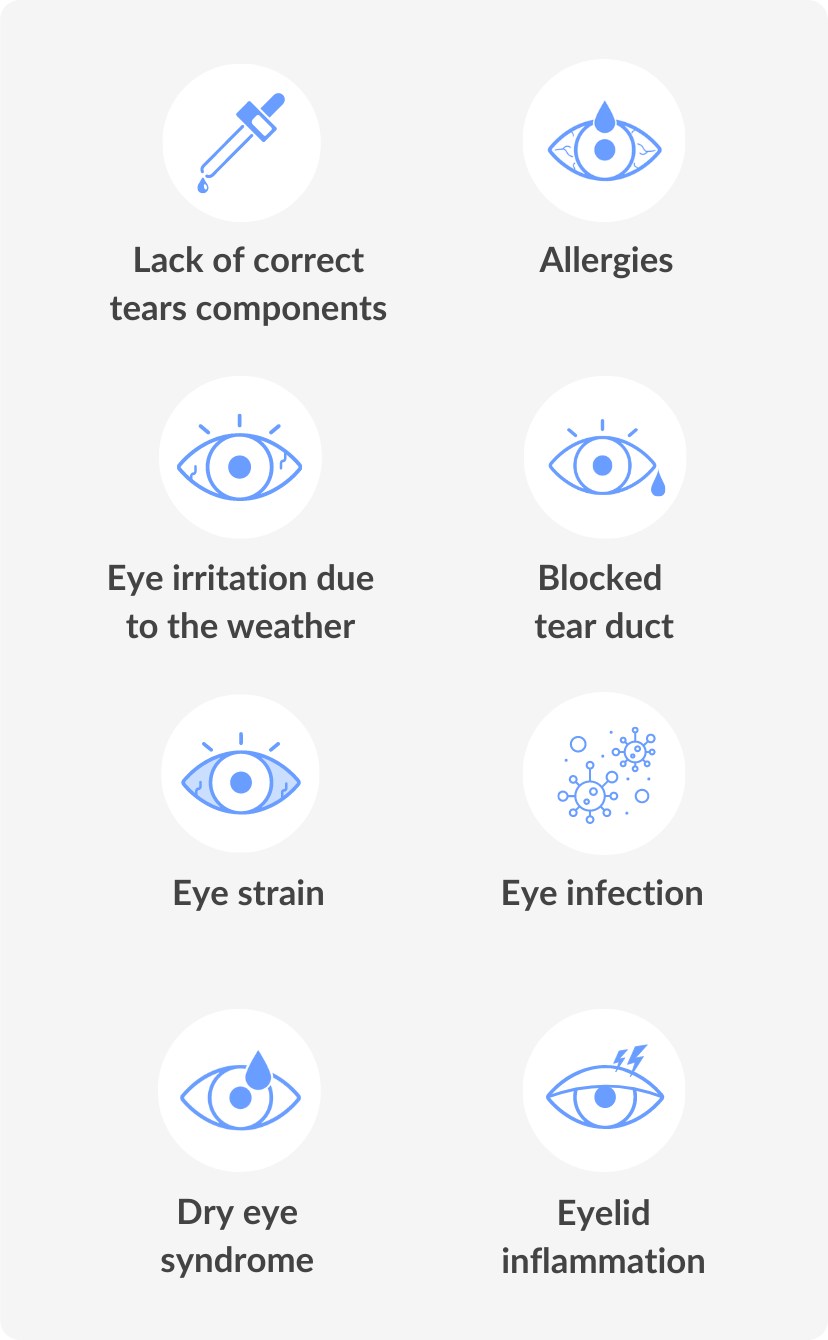
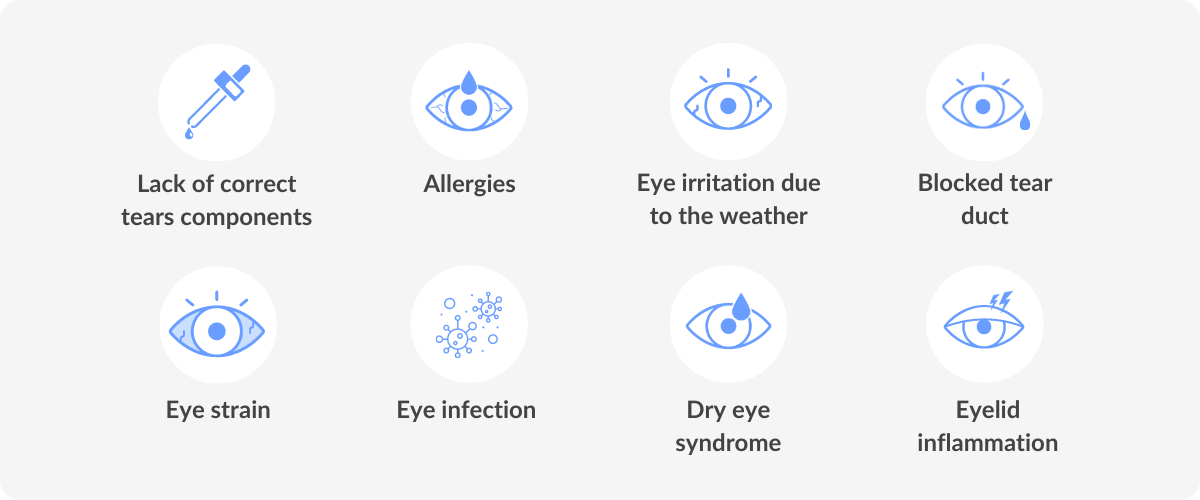
Symptoms of watery eyes
Watery eyes can manifest with other symptoms in addition to excess tears. These symptoms may vary depending on the underlying cause. Here are some common symptoms associated with watery eyes:
- Excessive tearing
- Blurred vision
- Redness
- Eye discomfort (i.e., itchy eyes)
- Eyelid swelling
- Vision changes
- Watery or sticky discharge
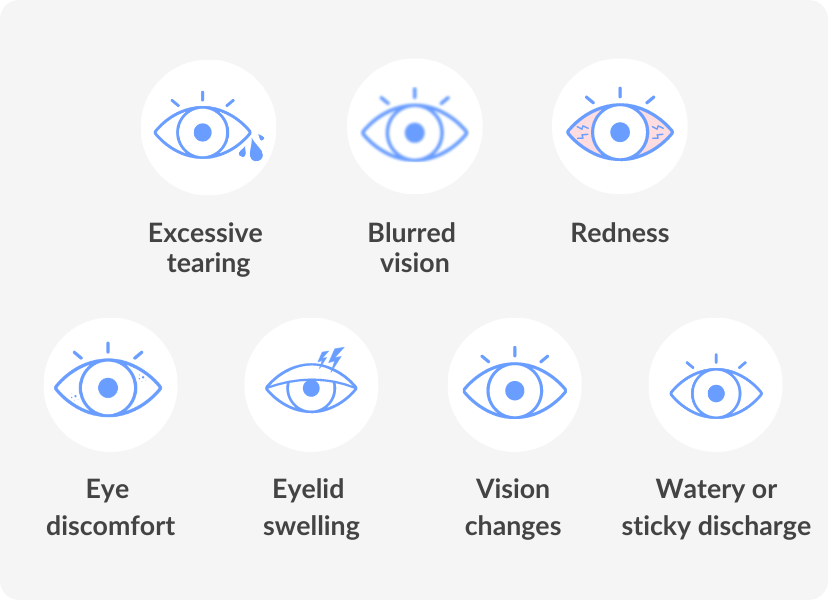
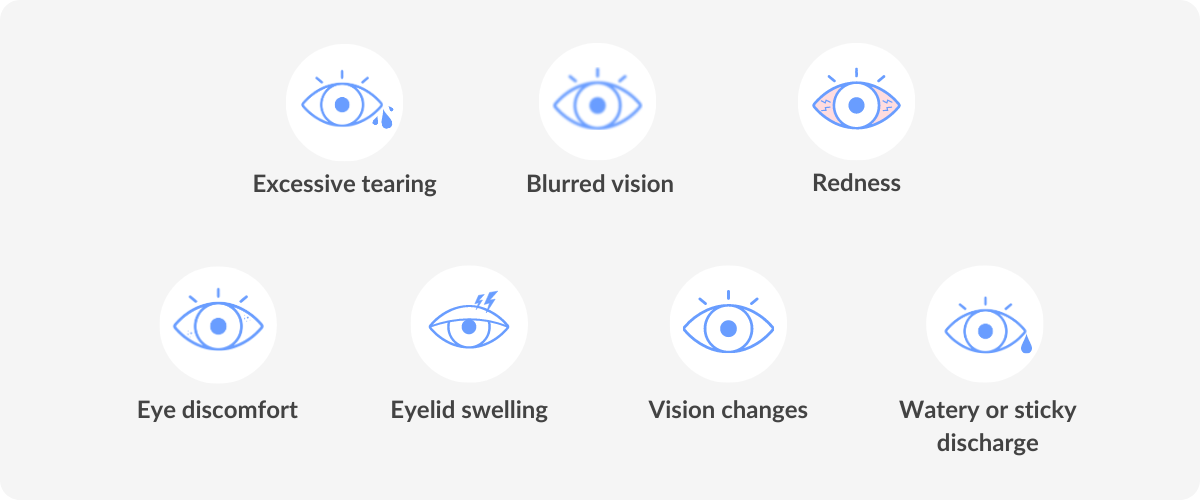
Watering and dry eyes
One of the most common causes of watery eyes is dry eye syndrome. When your eyes are extremely dry, it can lead to an overproduction of tears. This happens because the lack of proper lubrication prompts your eyes to continuously generate excessive tears, thereby perpetuating the cycle.
The cause of dry eyes is usually an imbalance in the composing ingredients of the tears. You should contact your eye doctor for a check-up to determine the best treatment.
Blocked tear ducts
Blocked tear ducts, also called lacrimal ducts, are another common cause of watering eyes among adults and older children.
Tear ducts are responsible for draining tears from the surface of the eye into the nasal cavity. When these ducts become partially or completely obstructed, tears cannot drain properly, resulting in an accumulation of tears and watery eyes.
The obstruction may become more pronounced during periods of inactivity, such as during sleep. When you sleep, the tear system production continues, but the drainage pathway may be limited or completely blocked, causing tears to pool on the eye’s surface.
Upon waking up in the morning, you may notice excessive tearing and watery eyes due to accumulated tears overnight.
DID YOU KNOW
The most common causes of watery eyes (epiphora) in the morning are dry eyes and blocked tear ducts. These may cause an accumulation of tears on the surface of the eye during sleep time.
Watering eyes in babies
Watery eyes in babies is usually nothing to be concerned about. It is mainly due to obstructed tear ducts, which prevent normal tear production and draining of the eye. (Dhiman et al. 2017)
Gently massaging the tear ducts while applying light pressure with the finger and thumb to the outer side of the nose can potentially help dislodge tears.
Another reason can be that some newborns are born with underdeveloped tear ducts. This is why watery eyes often clear up in a few weeks when the tear ducts develop. In any case, we recommend seeing a professional for the right diagnosis and treatment.
How do I manage watery eyes?
Since different factors can cause epiphora, treatments to mitigate and cure this condition can vary. Here are some suggestions that can help alleviate watery eyes:
- Artificial tears: lubricating eye drops, also known as artificial tears, can help relieve dryness and irritation that may contribute to watery eyes. These eye drops can help maintain moisture on the ocular surface and reduce excessive tear production.
- Warm compresses: applying a warm compress to the eyes can help open up blocked tear ducts and promote proper drainage. Soak a clean washcloth in warm water, wring out the excess moisture and place it gently over closed eyes for a few minutes.
Adjust your screen time: prolonged screen use might contribute to your watery eyes. Take regular breaks and consider getting a pair of blue light-blocking glasses. This can help reduce eye strain and excessive tearing.
Protect your eyes from the surrounding environment: if your watery eyes are triggered by allergies or irritants, try to minimise exposure to these substances. Also, when outdoors on windy days or in dusty or dry environments, wear wraparound sunglasses or protective eyewear to shield your eyes from irritants.
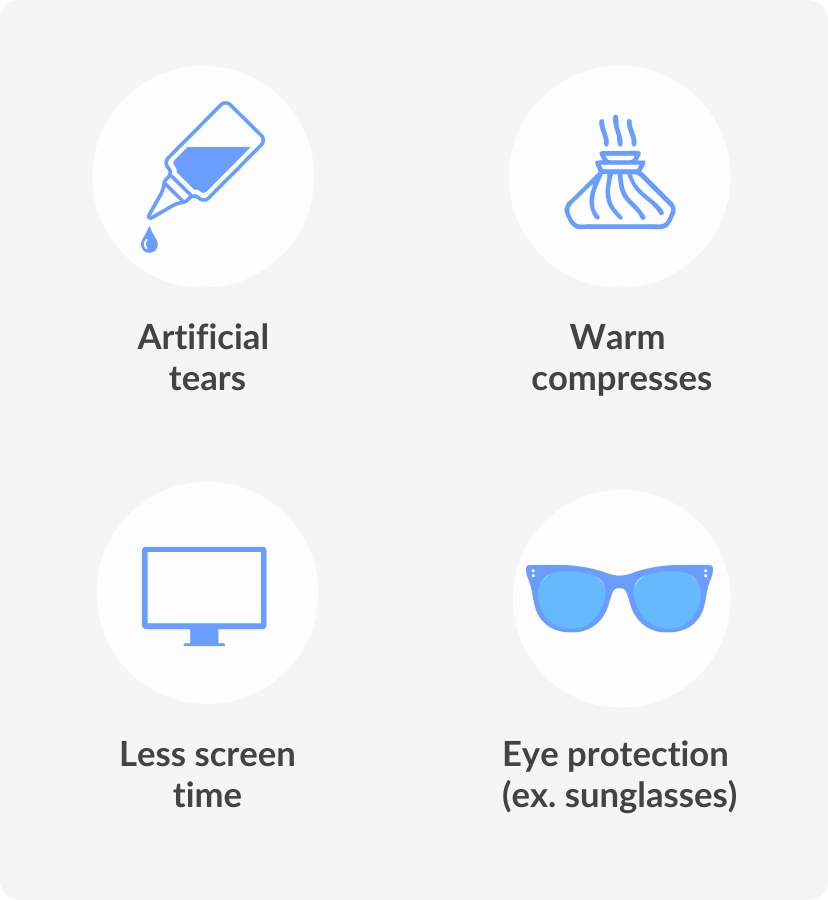
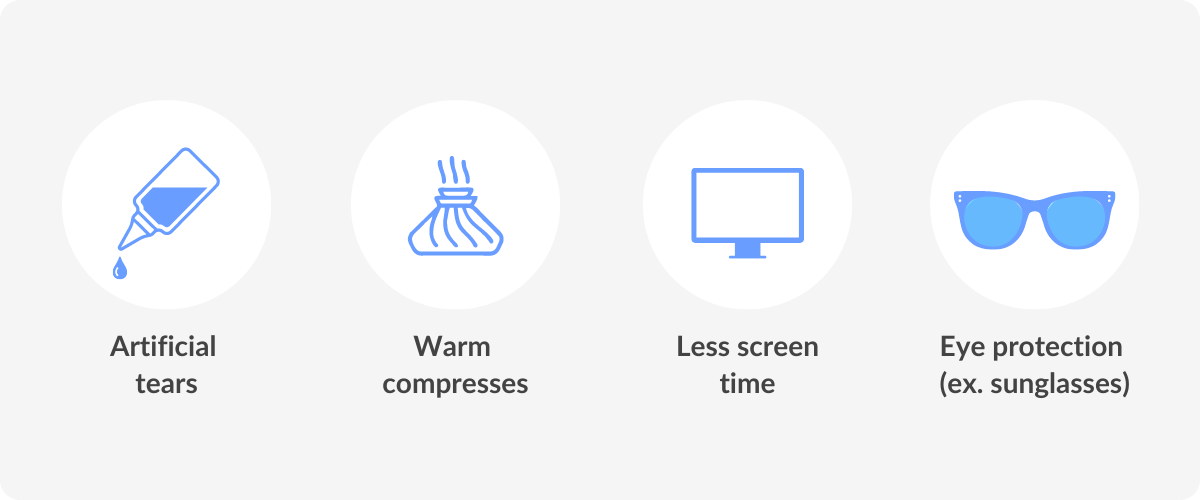
Always remember that these are general guidelines. If the problem persists or worsens, we recommend consulting an eye doctor for professional medical advice on the causes and best treatment.
If you have any doubts about watery eyes or any other query related to eye health, you can contact our online certified opticians for a free consultation.
References
Chawla, B., Dhiman, R., Chandra, M., Bajaj, M., & Pushker, N. (2017). Clinical profile of the patients with pediatric epiphora in a tertiary eye care center. Indian Journal of Ophthalmology, 65(1). PubMed Central. https://doi.org/10.4103/0301-4738.202306










































